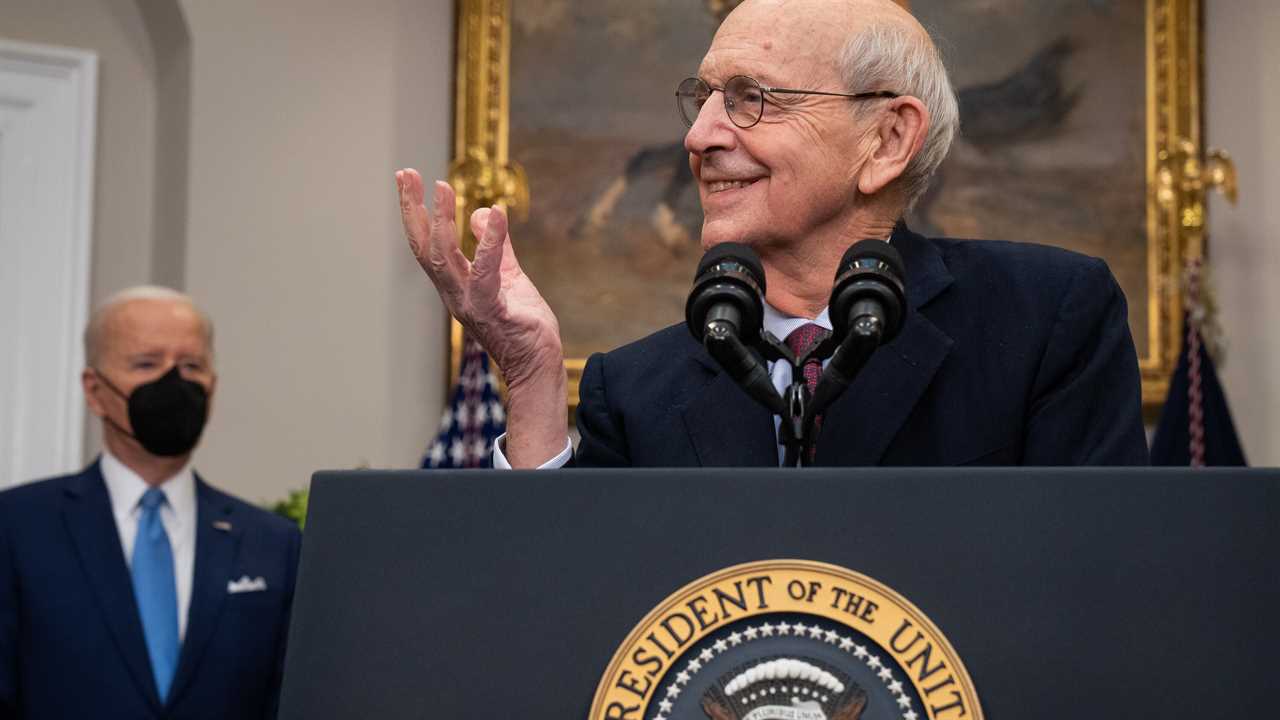
WASHINGTON — Justice Stephen G. Breyer has a mild temperament, and he writes cautious opinions. But his questions from the bench can be wild flights of fancy, enlivening the proceedings with musings about marshmallow guns, aspirin fingers, tomato children and the Pussycat Burglar.In an affectionate tribute issued soon after Justice Breyer announced last week that he planned to retire, Chief Justice John G. Roberts Jr. noted this striking aspect of his colleague’s work.“His fanciful hypotheticals during oral argument have befuddled counsel and colleagues alike,” the chief justice said.Consider Justice Breyer’s reflections at the first argument of the current term, in October. The case was a dispute over whether Tennessee was taking too much water from an aquifer beneath Mississippi and several other states.Justice Breyer launched into a meditation on fog.“San Francisco has beautiful fog,” he said. “Suppose somebody came by in an airplane and took some of that beautiful fog and flew it to Colorado, which has its own beautiful air.”“And somebody took it and flew it to Massachusetts or some other place,” he continued. “I mean, do you understand how I’m suddenly seeing this and I’m totally at sea? It’s that the water runs around. And whose water is it? I don’t know. So you have a lot to explain to me, unfortunately, and I will forgive you if you don’t.”After only a short pause, a lawyer for Mississippi gamely answered the question using ordinary legal concepts. (In November, the court unanimously ruled for Tennessee.)In December, in a case about attempted robbery, Justice Breyer asked about a gun made out of marshmallows before saying, “I’m slightly sorry I used that example.”In a 2004 argument over whether the federal government could regulate homegrown medicinal marijuana, Justice Breyer imagined a farmer who “grows heroin, cocaine, tomatoes that are going to have genomes in them that could, at some point, lead to tomato children that will eventually affect Boston.”In 2011, he asked whether he could obtain a patent for discovering a “law of nature” based on the color of people’s pinkies: “If you look at a person’s little finger, and you notice the color, it shows the aspirin, you need a little more,” he said.At a 2010 argument over whether burglary is a crime of violence, Justice Breyer suggested that it need not always be.“You’ve heard of cat burglars,” he said. “Well, this gentleman is called the Pussycat Burglar, and the reason is he’s never harmed a soul. He only carries soft pillows as weapons. If he sees a child, he gives them ice cream.”There was laugher in the courtroom after Justice Breyer described the Pussycat Burglar, which was a common response to his questions, said Jay D. Wexler, a law professor at Boston University and the leading empiricist of humor at the Supreme Court. For years, Professor Wexler said, Justice Breyer trailed only Justice Antonin Scalia in court reporters’ notations of “[laughter]” in transcripts of Supreme Court arguments.Since Justice Scalia’s death in 2016, Professor Wexler said, Justice Breyer has consistently ranked first. He added, though, that the data did not reveal the volume or nature of the laughter.In a pioneering 2005 study, Professor Wexler wrote that the simple notation “[laughter]” does not separate “the genuine laughter brought about by truly funny or clever humor and the anxious kind of laughter that arises when one feels nervous or uncomfortable or just plain scared for the nation’s future.”“Breyer got most of his laughs from his often long, convoluted and inexplicable hypotheticals,” Professor Wexler said on Friday. “Maybe people were laughing with him at some point earlier in his time on the bench, but toward the end I think it was more like, ‘Oh, there goes Breyer with his long, convoluted, inexplicable hypotheticals again.’”“He also occasionally got a laugh by saying a funny word, like the time he said ‘Limburger cheese,’” Professor Wexler said.Justice Breyer’s questions, even when they were more conventional, had another characteristic quality: They kept going.“Breyer’s unique signature at oral argument — which challenged and often befuddled lawyers appearing before the bench — was the sheer length of his questions,” Richard J. Lazarus, a law professor at Harvard, wrote in an essay published on Friday.“The median number of total words spoken by a justice in asking questions during an oral argument in recent decades has been as low as 400 and no more than 500 words,” Professor Lazarus wrote. “Justice Breyer, by contrast, has spoken almost twice that — approaching 900 words per argument.”Justice Breyer’s questions, Professor Lazarus wrote, were evidence of an engaged and open mind.“Breyer’s clear purpose was to explain (at length) hisBy: Adam Liptak
Title: With Breyer’s Exit, a Farewell to Marshmallow Guns and Tomato Children
Sourced From: www.nytimes.com/2022/01/31/us/politics/stephen-breyer-supreme-court.html
Published Date: Mon, 31 Jan 2022 10:00:07 +0000
Read More
Did you miss our previous article...
https://badpoliticians.com/us-politics/the-computer-chip-shortage-could-incite-a-us-chinaus-conflict
 UK PoliticsWorld PoliticsVideosPrivacy PolicyTerms And Conditions
UK PoliticsWorld PoliticsVideosPrivacy PolicyTerms And Conditions
